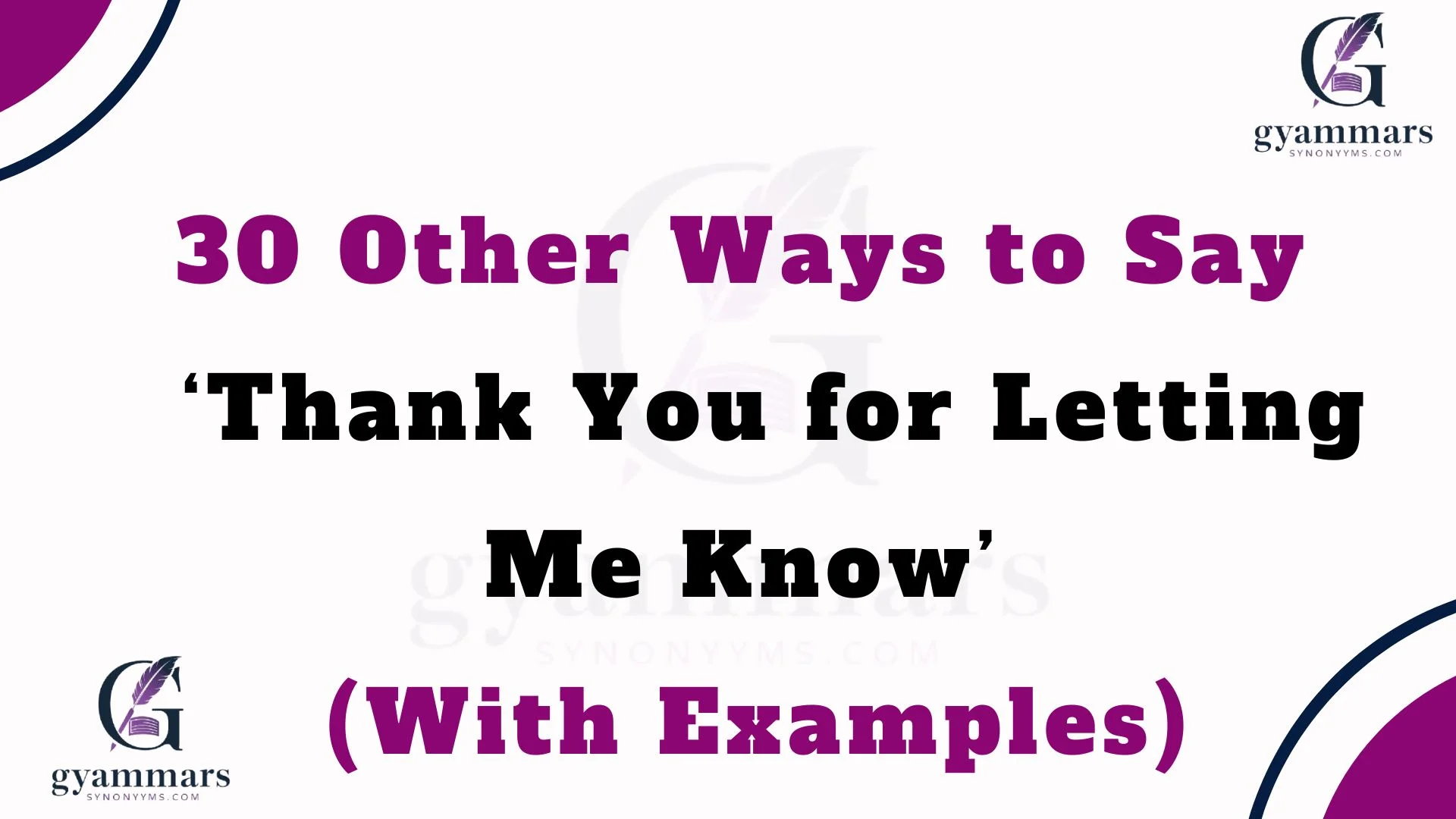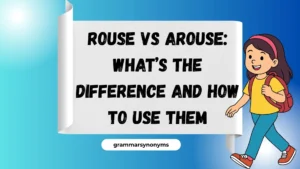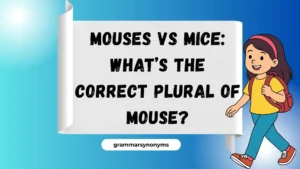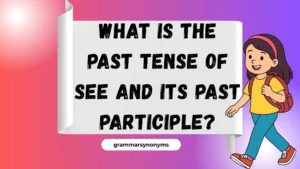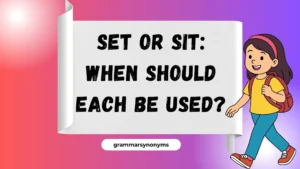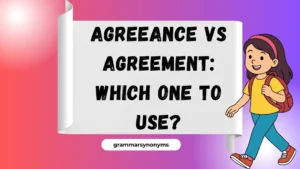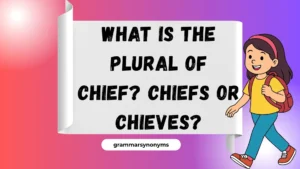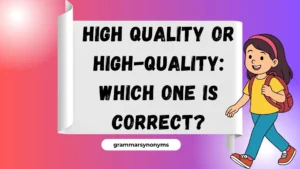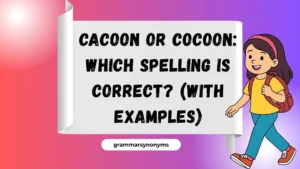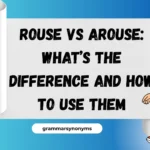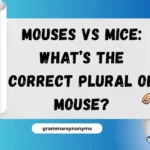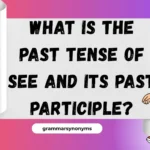Finding the right words to express gratitude can transform your message and make it feel more personal and thoughtful. Whether you’re communicating in a professional setting or a more casual, everyday situation, using the right phrasing can help you convey warmth and sincerity. Below are 30 other ways to say “Thank you for letting me know” that can add extra meaning to your message and help you connect better with your recipient.
What Does “Thank You for Letting Me Know” Mean?
“Thank you for letting me know” is a polite expression used to show appreciation when someone provides you with useful information, updates, or clarifications. It conveys gratitude for their effort in keeping you informed. Depending on the context, it can be used in professional or personal conversations to acknowledge that you received the information.
Is It Professional/Polite to Say “Thank You for Letting Me Know”?
Yes, saying “Thank you for letting me know” is both professional and polite. It reflects appreciation for the effort someone took to inform you about something. In professional settings, it can demonstrate respect for the other person’s time and a recognition of their input. In personal conversations, it show consideration and thoughtfulness.
Pros or Cons
Pros:
- Shows gratitude and appreciation.
- Polite and respectful.
- Widely understood across various contexts.
Cons:
- May sound repetitive if overused.
- Not always personal or engaging if used in a very formulaic manner.
- Thanks for Sharing That
- I Appreciate Your Input
- I’m Grateful for the Update
- Thanks for the Early Notice
- Thanks for Keeping Me Informed
- I’m Thankful for the Information
- Thank You for the Valuable Information
- I’m Glad You Let Me Know
- Thanks for the Prompt Response
- Thanks for the Thoughtful Update
- Thanks for Alerting Me
- Thanks for Bringing That to My Attention
- Thanks for Keeping Me Posted
- I Appreciate You Keeping Me Updated
- Thanks for the Quick Update
- Thanks for Letting Me Know About the Change
- I Appreciate the Heads-Up on This
- Thanks for Keeping Me in the Loop
- Thanks for the Early Heads-Up
- I Appreciate the Notification
- Thanks for the Clarification
- Thank You for Giving Me the Heads-Up
- Thanks for Keeping Me in the Know
- I Appreciate You Notifying Me
- Thanks for the Timely Update
- Thank You for Keeping Me Updated
- Thanks for Letting Me Know in Advance
- I Appreciate You Keeping Me in the Loop
- Thanks for Informing Me
- Thanks for Your Thoughtful Notice
1. “I Appreciate the Update”
Definition: A warm and sincere way to express gratitude for receiving new information.
Detailed Explanation: This phrase expresses your acknowledgment of the information shared with you and shows you value it.
Scenario Examples:
Email: “I appreciate the update on the project timeline. Thank you for keeping me informed.”
Conversation: “I appreciate the update on the weather. It’s always good to be prepared.”
Best Use: Ideal for professional settings or when you want to sound more formal.
Tone: Grateful and professional.
Additional Notes: It implies a more general acknowledgment of the update.
2. “Thanks for the Information”
Definition: A straightforward and neutral way to show gratitude for receiving details.
Detailed Explanation: This phrase is simple and direct, suitable for any context where you want to acknowledge the information shared.
Scenario Examples:
Text Message: “Thanks for the information! I’ll review it and get back to you soon.”
Meeting: “Thanks for the information about the new protocol, I’ll keep it in mind.”
Best Use: When you need to convey appreciation without being overly elaborate.
Tone: Casual and neutral.
Additional Notes: Effective in both professional and personal situations.
3. “Thanks for Keeping Me in the Loop”
Definition: Expresses thanks for keeping you informed and included in ongoing updates.
Detailed Explanation: This phrase conveys that you appreciate being kept up to date on a particular matter.
Scenario Examples:
Email: “Thanks for keeping me in the loop about the client’s decision.”
Phone Call: “Thanks for keeping me in the loop with the changes to the schedule.”
Best Use: Perfect for workplace communication or when you want to acknowledge continued updates.
Tone: Appreciative and informal.
Additional Notes: A great option when someone is actively keeping you updated on a specific topic.
4. “I’m Grateful for the Heads-Up”
Definition: A friendly way to express appreciation for an early warning or notice.
Detailed Explanation: This phrase works well when you want to thank someone for giving you an early update or alert about something.
Scenario Examples:
Text Message: “I’m grateful for the heads-up about the meeting time change.”
Conversation: “Thanks for the heads-up about the potential delays in the delivery.”
Best Use: Informal situations or when a proactive update is given.
Tone: Grateful and conversational.
Additional Notes: This phrase is great when someone is providing you with useful warnings or information in advance.
5. “Thanks for the Clarification”
Definition: Shows gratitude when someone provides clarity or clears up confusion.
Detailed Explanation: This phrase is especially useful when you were uncertain about something, and the person helped you gain a better understanding.
Scenario Examples:
Email: “Thanks for the clarification on the project’s requirements.”
Discussion: “Thanks for the clarification on the deadline. Now everything is clear.”
Best Use: Ideal when you were previously unsure and the other person helped clarify things.
Tone: Appreciative and respectful.
Additional Notes: It’s suitable for both formal and informal contexts.
6. “I Value the Insight”
Definition: Expresses appreciation for thoughtful advice or perspective shared by someone.
Detailed Explanation: This phrase acknowledges that the person’s input was valuable and that you respect their expertise.
Scenario Examples:
Email: “I value the insight you provided on the new marketing strategies.”
Meeting: “I really value the insight you shared on this matter. It gives me a new perspective.”
Best Use: When someone provides meaningful advice or knowledge.
Tone: Respectful and appreciative.
Additional Notes: This is a more formal and reflective way to express gratitude.
7. “I Appreciate the Heads-Up”
Definition: A way to thank someone for providing you with an early alert or notice.
Detailed Explanation: This phrase is used when someone gives you important information ahead of time, allowing you to prepare.
Scenario Examples:
Message: “I appreciate the heads-up about the changes in the schedule.”
Phone Call: “I appreciate the heads-up about the weather forecast. It helps me plan better.”
Best Use: When someone gives you an early warning or notice that allows you to take action. Tone: Casual and grateful.
Additional Notes: Useful in both professional and casual contexts.
8. “Thanks for Letting Me Know About That”
Definition: A simple way to acknowledge that someone has informed you about something.
Detailed Explanation: It’s an easy, straightforward way to say thanks without over-elaborating.
Scenario Examples:
Text: “Thanks for letting me know about the event location.”
Conversation: “Thanks for letting me know about the changes to the schedule.”
Best Use: Casual or informal settings, when you want to keep things brief.
Tone: Neutral, polite.
Additional Notes: This expression works for everyday conversations.
9. “I Appreciate the Feedback”
Definition: Expressing thanks when receiving comments or suggestions from others.
Detailed Explanation: This phrase is used when someone provides you with feedback, and you want to acknowledge and appreciate their input.
Scenario Examples:
Email: “I appreciate the feedback on my presentation; it will help me improve next time.”
Conversation: “I appreciate the feedback on my proposal, it gives me great ideas to work with.”
Best Use: Ideal for feedback situations, both formal and informal.
Tone: Respectful and appreciative.
Additional Notes: It is especially helpful in professional contexts when receiving performance reviews or suggestions.
10. “Thanks for the Reminder”
Definition: Used when someone reminds you of something you may have forgotten or overlooked. Detailed Explanation: A simple and effective way to show gratitude when someone helps you remember something important. Scenario Examples:
Text: “Thanks for the reminder about the meeting time!”
Conversation: “Thanks for the reminder about the deadline – I almost forgot.”
Best Use: When someone provides a reminder, especially for appointments or tasks.
Tone: Casual, appreciative.
Additional Notes: Common in both professional and personal settings.
11. “Thanks for Sharing That”
Definition: Acknowledges and expresses gratitude for someone passing along information or details.
Detailed Explanation: This phrase is commonly used when someone shares valuable or helpful information.
Scenario Examples:
Email: “Thanks for sharing that report. It really helped clarify the situation.”
Conversation: “Thanks for sharing that idea with me! It sounds interesting.”
Best Use: Casual or professional situations when someone has provided useful information.
Tone: Friendly and appreciative.
Additional Notes: Versatile and can be used in both professional and informal settings.
12. “I Appreciate Your Input”
Definition: A polite and formal way to express gratitude for someone’s contribution or opinion.
Detailed Explanation: This phrase recognizes that the person has offered valuable thoughts or perspectives.
Scenario Examples:
Meeting: “I appreciate your input during the brainstorming session.”
Email: “I appreciate your input on this matter – it will help us improve.”
Best Use: When someone contributes valuable advice or suggestions, particularly in a professional or group setting.
Tone: Respectful and formal.
Additional Notes: Perfect for professional interactions, especially in collaborative work environments.
13. “I’m Grateful for the Update”
Definition: Expresses appreciation for receiving the latest news or developments on a matter.
Detailed Explanation: This phrase is often used when someone keeps you updated about a changing situation.
Scenario Examples:
Email: “I’m grateful for the update on the project status. I’ll adjust my plans accordingly.”
Conversation: “I’m grateful for the update on the weather forecast – now I can plan my day better.”
Best Use: When you want to acknowledge the helpfulness of receiving an update.
Tone: Appreciative and polite.
Additional Notes: Appropriate for both formal and informal conversations.
14. “Thanks for the Early Notice”
Definition: Acknowledges someone’s timely communication, allowing you to prepare in advance.
Detailed Explanation: This phrase conveys thanks for someone providing you with information early, so you have time to react.
Scenario Examples:
Email: “Thanks for the early notice regarding the schedule change.”
Phone Call: “Thanks for the early notice about the meeting time change. It helps me adjust.”
Best Use: When someone gives you advanced notice, allowing you time to plan or react.
Tone: Grateful and thoughtful.
Additional Notes: Ideal for situations requiring quick adjustments or preparations.
15. “Thanks for Keeping Me Informed”
Definition: A way to express thanks for consistent updates and keeping you aware of changes.
Detailed Explanation: This phrase acknowledges that someone has made an effort to ensure you are aware of important details.
Scenario Examples:
Message: “Thanks for keeping me informed about the new policies – it’s really helpful.”
Email: “Thanks for keeping me informed about the team’s progress on the project.”
Best Use: Great for professional or group settings where ongoing updates are provided.
Tone: Polite and appreciative.
Additional Notes: Suitable for work or any situation where you are regularly updated.
16. “I’m Thankful for the Information”
Definition: A simple expression of gratitude for receiving useful information.
Detailed Explanation: This phrase is a straightforward way to thank someone when they share important or helpful details.
Scenario Examples:
Conversation: “I’m thankful for the information on the new software.”
Email: “I’m thankful for the information about the meeting time change.”
Best Use: Suitable for quick, straightforward exchanges.
Tone: Grateful and sincere.
Additional Notes: Works well in both informal and formal contexts.
17. “Thank You for the Valuable Information”
Definition: An expression of gratitude that emphasizes the worth or importance of the information shared.
Detailed Explanation: This phrase shows that you not only appreciate the information but also recognize its significance.
Scenario Examples:
Email: “Thank you for the valuable information about the market trends.”
Conversation: “Thank you for the valuable information about the project. It’s really useful.”
Best Use: Ideal for acknowledging information that is particularly important or beneficial.
Tone: Respectful and formal.
Additional Notes: This phrase is often used in professional or business settings.
18. “I’m Glad You Let Me Know”
Definition: A casual and friendly way to express gratitude when someone provides you with helpful information.
Detailed Explanation: This phrase conveys that you’re happy the person shared the information with you.
Scenario Examples:
Text: “I’m glad you let me know about the party details!”
Conversation: “I’m glad you let me know about the changes to the report. It helps a lot.”
Best Use: Casual and friendly situations where you want to show appreciation.
Tone: Warm and conversational.
Additional Notes: It works best in personal interactions.
19. “Thanks for the Prompt Response”
Definition: Acknowledges someone’s quick reply and expresses gratitude for their timeliness.
Detailed Explanation: This phrase is used when you want to thank someone for replying promptly to a request or query.
Scenario Examples:
Email: “Thanks for the prompt response to my inquiry about the product.”
Message: “Thanks for the prompt response to my question! I appreciate it.”
Best Use: When timeliness is important and the response is quick.
Tone: Professional and appreciative.
Additional Notes: Great for both professional and casual conversations when timing is crucial.
20. “Thanks for the Thoughtful Update”
Definition: A way to express gratitude for receiving information that was delivered with care or consideration.
Detailed Explanation: This phrase conveys appreciation not just for the information, but also for the thoughtfulness behind sharing it.
Scenario Examples:
Email: “Thanks for the thoughtful update about the client meeting.”
Phone Call: “Thanks for the thoughtful update on the project’s progress.”
Best Use: When someone provides you with an update in a considerate manner.
Tone: Warm and appreciative.
Additional Notes: Great for situations where you feel that the other person has gone out of their way to help you.
21. “I Appreciate the Heads-Up on This”
Definition: Acknowledges someone’s early alert or advance notice about something important.
Detailed Explanation: This phrase is used to express gratitude for being given a heads-up, especially in time-sensitive situations.
Scenario Examples:
Message: “I appreciate the heads-up on the upcoming deadline!”
Email: “I appreciate the heads-up about the change in the meeting location.”
Best Use: Ideal when you need time to react to upcoming changes.
Tone: Grateful and casual.
Additional Notes: Useful in both formal and informal communication when receiving alerts or warnings.
22. “Thanks for Alerting Me”
Definition: A formal way of thanking someone for notifying you about something.
Detailed Explanation: This phrase is used to express thanks when someone has brought something to your attention.
Scenario Examples:
Email: “Thanks for alerting me to the problem with the server.”
Message: “Thanks for alerting me about the issue with the order.”
Best Use: Professional settings when you need to acknowledge being notified of something.
Tone: Polite and formal.
Additional Notes: This phrase is most effective when responding to someone who has informed you of a concern or potential issue.
23. “Thanks for Bringing That to My Attention”
Definition: Used when someone points out something important that you may have missed.
Detailed Explanation: This phrase acknowledges that the person has helped you focus on an issue or detail you might not have noticed.
Scenario Examples:
Email: “Thanks for bringing that to my attention. I’ll follow up right away.”
Conversation: “Thanks for bringing that to my attention! It’s crucial to address it.”
Best Use: Situations where someone helps you recognize something important.
Tone: Appreciative and thoughtful.
Additional Notes: This phrase is especially helpful in professional contexts when someone highlights a concern or detail.
24. “Thanks for Keeping Me Posted”
Definition: A casual way to express gratitude for being regularly updated about something.
Detailed Explanation: This phrase is often used when someone keeps you informed over some time.
Scenario Examples:
Email: “Thanks for keeping me posted on the team’s progress.”
Conversation: “Thanks for keeping me posted about the changes to the itinerary.”
Best Use: Ideal when you’re being kept updated on a regular basis.
Tone: Casual and friendly.
Additional Notes: Works best for informal conversations, especially when updates are ongoing.
25. “I Appreciate You Keeping Me Updated”
Definition: A formal expression of gratitude for being regularly informed about something.
Detailed Explanation: This phrase conveys appreciation for receiving continuous updates, particularly in a professional context.
Scenario Examples:
Email: “I appreciate you keeping me updated about the project’s milestones.”
Meeting: “I appreciate you keeping me updated on the client’s feedback.”
Best Use: Ideal for professional settings or when someone regularly provides updates.
Tone: Respectful and appreciative.
Additional Notes: Works best in formal or work-related communication.
Also Read This : 30 Other Ways to Say ‘Happy Sabbath’ (With Examples)
26. “Thanks for the Quick Update”
Definition: Used to thank someone for providing a fast update.
Detailed Explanation: This phrase acknowledges the promptness with which the person updated you.
Scenario Examples:
Text: “Thanks for the quick update about the flight delays.”
Email: “Thanks for the quick update on the meeting agenda.”
Best Use: When you need a swift update and appreciate the speed.
Tone: Friendly and appreciative.
Additional Notes: Suitable for both informal and formal settings.
27. “Thanks for Letting Me Know About the Change”
Definition: A direct way to acknowledge someone informing you about a specific change.
Detailed Explanation: This phrase is used when someone notifies you of a particular alteration to plans or details.
Scenario Examples:
Email: “Thanks for letting me know about the change in the agenda.”
Conversation: “Thanks for letting me know about the change in our meeting location.”
Best Use: Ideal when acknowledging a change in plans.
Tone: Simple and straightforward.
Additional Notes: This phrase is both professional and casual.
28. “I Appreciate the Prompt Alert”
Definition: A way to thank someone for quickly informing you about an important matter.
Detailed Explanation: This phrase is used when someone promptly alerts you to something that needs attention.
Scenario Examples:
Email: “I appreciate the prompt alert about the issue with the invoice.”
Phone Call: “I appreciate the prompt alert about the power outage.”
Best Use: Ideal when you need to act quickly in response to an alert.
Tone: Formal and appreciative.
Additional Notes: Best used in professional settings or emergencies.
29. “Thank You for Keeping Me in the Loop”
Definition: Acknowledges gratitude for someone ensuring you are consistently updated and informed.
Detailed Explanation: This phrase shows that you appreciate being kept aware of developments, especially in ongoing situations.
Scenario Examples:
Email: “Thank you for keeping me in the loop about the client’s decision.”
Meeting: “Thank you for keeping me in the loop about the latest changes to the schedule.”
Best Use: When someone has provided continuous or regular updates.
Tone: Polite and respectful.
Additional Notes: Suitable for both professional and casual communication.
30. “Thanks for Keeping Me in the Know”
Definition: A casual and friendly way of thanking someone for keeping you informed.
Detailed Explanation: This phrase is often used to acknowledge that you’ve been kept informed about a situation or issue.
Scenario Examples:
Email: “Thanks for keeping me in the know about the changes in the plan.”
Conversation: “Thanks for keeping me in the know about the details of the meeting.”
Best Use: Informal or friendly situations where you’ve been continuously updated.
Tone: Warm and appreciative.
Additional Notes: Ideal for casual or less formal settings.
Conclusion
No matter how you choose to express it, finding thoughtful ways to acknowledge the efforts and time of others can go a long way in strengthening relationships. Whether you’re responding to a colleague, a friend, or a family member, these alternatives to “Thank you for letting me know” can help you convey your gratitude with sincerity and warmth.
FAQs
1. Why is it important to find different ways to say “Thank You for Letting Me Know”?
Finding different ways to say “Thank you for letting me know” helps make your communication feel more personal, thoughtful, and engaging. It allows you to tailor your message based on the context and relationship you share with the person, whether in a professional or casual setting. Using varied expressions also helps avoid sounding repetitive while showing sincerity in your appreciation.
2. Can I use these alternatives in a professional setting?
Yes, many of these alternatives are perfectly suitable for professional communication. Phrases like “I appreciate your input,” “Thank you for the update,” and “Thanks for keeping me in the loop” are commonly used in the workplace to show respect and acknowledgment. Just choose one that fits the tone and formality of the situation.
3. Are these phrases only suitable for written communication?
No, these phrases can be used in both written and spoken communication. Whether you’re sending an email, having a conversation, or replying to a message, these alternatives help express gratitude in a more thoughtful and personal way. It’s all about adjusting the tone to suit the context.
4. How do I know which alternative to use?
Choosing the right alternative depends on the situation and your relationship with the person. For more formal or professional interactions, use phrases like “I appreciate your input” or “Thank you for the clarification.” For casual or personal exchanges, phrases like “Thanks for keeping me in the loop” or “I’m glad you let me know” work well.
5. Can I use these alternatives in customer service or client communication?
Absolutely! These alternatives are great for customer service or client communication. They help maintain a polite and professional tone while expressing gratitude. For instance, “I appreciate the update” or “Thank you for letting me know” can be used when responding to client inquiries or following up on important details.

“Emma Brooke at Grammar Synonyms is your trusted source for mastering the art of language. Whether you’re looking for the perfect synonym, refining your grammar, or searching for that one ideal phrase, we’ve got you covered. With a wealth of tools and resources, Emma Brooke brings you creative solutions for all your writing needs, making sure your words always hit the mark. Unlock a world of language possibilities and elevate your writing with ease.”
